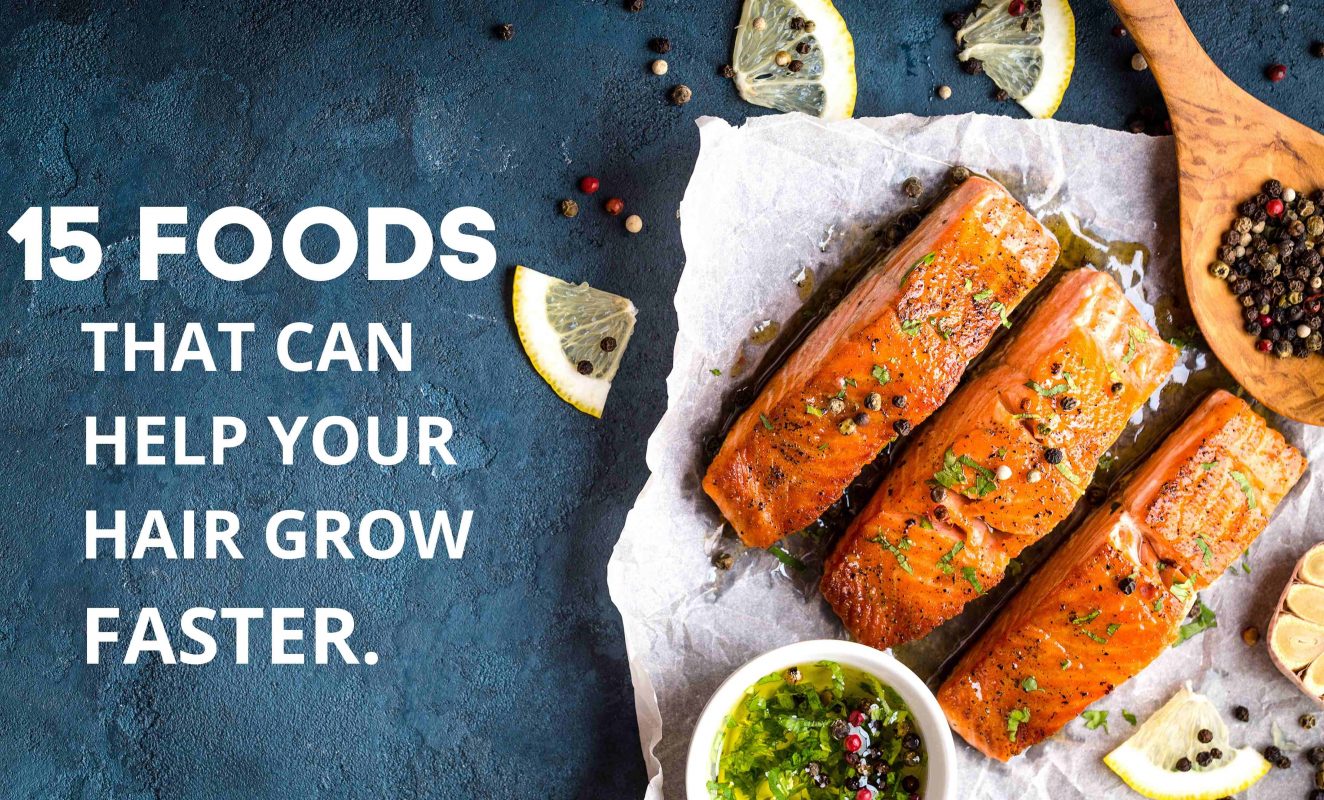Food
15 Foods That Can Help Your Hair Grow Faster
If your strands have seen better days—split ends, limited volume, and maybe even some patchy spots—you might start to wonder if there’s anything you can do to turn things around. Vitamins for growth or topical oils and serums for thickness, maybe?
Hair normally grows at a rate of approximately a half-inch per month, or six inches a year, says Dr. William Li, a board-certified physician and author of Eat to Beat Disease: The New Science of How Your Body Can Heal Itself. Unfortunately, many uncontrollable factors influence how closely your body follows this pattern—genetics, sex, age, and illness, for example. There is, however, one very controllable element that can make a difference: nutrition.
Each of the 100,000 hair follicles on your head is connected its own blood supply, and nurturing the circulation to those areas can help hair grow faster, says Li. Growth can also be sparked by delivering stem cells to your scalp—and there are plenty of foods that naturally increase the stem cells inside your body, he adds.
So what should you eat to stop hair loss? The short answer: It depends. If loss is a result of genetics or illness, there’s really no magic ingredient for regrowth—it’s better to check in with your doctor for professional advice. But if your goal is longer, fuller, shinier, locks, this list of more than a dozen foods can help hair grow faster naturally. (And—yes—there are vegetarian and vegan options abound!)
Eggs
“When it comes to diet, nutritional deficiencies associated with hair loss include low levels of biotin, iron, and vitamin D,” says Li. To replenish many of these nutrients—particularly biotin—add eggs to your regular rotation.
Barley
If you’re suffering from hair loss, eat foods—like barley—that promote better blood flow to the scalp in order to help hair follicles survive, says Li.
Almonds
A biotin deficiency can cause thinning, says Bonnie Taub-Dix, RDN, creator of BetterThanDieting.com. Conversely, adequate biotin intake—one serving of almonds, for example—can thicken hair and even stimulate new growth, leading to silky, strong strands.
Avocado
Avocado provides natural oils that keep hair feeling supple, plus helps hair retain moisture—two big reasons you’ll find this ingredient in a variety of nourishing DIY hair masks. It also contains a wealth of nutrients, including vitamins A, B6, D, and E, says Taub-Dix.
Guava
This tropical fruit is packed with vitamin C, which has been shown to help the body produce collagen, a substance that makes hair stronger and less brittle, says Li.
Strawberries
Fresh (or frozen!) strawberries provide antioxidants that help protect hair follicles and vitamin C to support collagen production—two things that result in stronger strands less prone to breakage, says Taub-Dix.
Mango
To coax stem cells to your scalp to speed up growth, try fruit that naturally increases stem cell production in the body, like tropical mango, says Li.
Salmon
Fatty fish, like salmon, is rich in omega-3 fatty acids—an important nutrient that keeps hair supple, says Taub-Dix.
Sunflower Seeds
Zinc is an excellent nutrient for hair growth since it can stimulate follicle recovery, support protein synthesis, and improve nutrient absorption, says Carielle Nikkel, MS, RDN, director of nutrition at Persona Nutrition. Though fish and meat are the main dietary sources of zinc, sunflower seeds are a great vegan and vegetarian option.
Chia Seeds
Studies also suggest omega-3s may benefit hair thickness and growth, says Nikkel. For vegans and vegetarians, chia seeds are a great plant-based source of these fatty acids.
Spinach
Leafy greens, like spinach, contain folate and iron, which are both important for maintaining a healthy blood supply to your hair. They also contain vitamin C, which assists with strengthening collagen production, says Taub-Dix.
Red Meat
For thicker hair, try consuming more red meat—it gives your body that boost of protein and iron it needs, says Dr. Michelle Zive, RD, co-author of National Academy of Sports Medicine’s Certified Nutrition Coach Program
Beans
Beans and other legumes are full of hair-nourishing ingredients, like protein, B-vitamins, and zinc, says Zive.
Fortified Breakfast Cereal
Many breakfast cereals are fortified with vitamin D, a nutrient that can help stimulate hair follicles, says Zive. As a bonus, some are also fortified with other key players, like iron, zinc, and vitamin A.
Green Peppers
Vitamin C—something ample in green peppers—also protects our bodies against oxidative stress, which contributes to hair loss and graying, says Nikkel.
Search: Brigitt Earley from Oprah Daily

